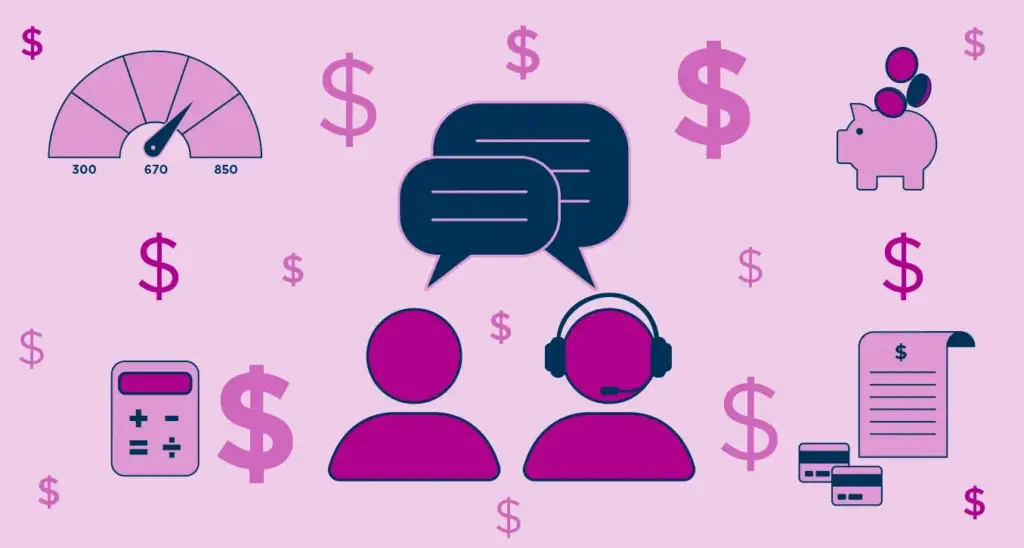Paying off student loan or credit card debt and having household income increase from less than $30,000 to $30,000+ cut the chances of becoming intermittently Financially Unhealthy by roughly half according to new research from the Financial Health Network.

A new report from the Financial Health Network suggests that there are particularly potent levers employers can pull to help your employees strengthen their financial health (they didn’t say this, we’re extrapolating).
Paying off a mortgage, student loan debt, and credit card debt are associated with reduced odds of becoming Financially Unhealthy by 38%, 45%, and 46%, respectively, according to the report, “Once Financially Unhealthy, Always Financially Unhealthy?,” while opening a savings account is associated with a 34% reduction in the odds of becoming Financially Unhealthy.
Student loan and credit card debt, $30,000+ income are key levers for financial health
In particular, paying off student loan or credit card debt and having household income increase from less than $30,000 to $30,000 or more cut the chances of becoming intermittently Financially Unhealthy by roughly half.
In other words, for maximum impact when it comes to alleviating intermittent financial struggles, employers should help solve for credit card and student loan debt while paying a living wage.
From the key findings:
1. More than 4 out of 5 Americans were Financially Unhealthy for at least one year.
This is more than what’s reported in annual estimates, leaving researchers to conclude that annual reports of financial health do not fully capture the lived reality of workers’ financial health, or unhealth, as the case may be.
2. Being Financially Unhealthy is a temporary issue for some, but a chronic challenge for many others.
More than one-third of Americans (36%) were Financially Unhealthy for one to four years. That is, they were Financially Unhealthy in some years but not others. Meanwhile nearly half (47%) were Financially Unhealthy for at least five years.
For one group, it was a chronic situation lasting for at least five years; for another, it was intermittent — part of a cycle between being Financially Healthy and Unhealthy.
3. Certain demographic groups more frequently reported being chronically Financially Unhealthy, but this was not the case for being intermittently Financially Unhealthy.
People who identify as Black or Latinx; people with household incomes below $100,000; women; people without a bachelor’s degree; and people with a disability are at a greater risk of being chronically Financially Unhealthy according to the study.
Black and Latinx people (63% and 54%, respectively) more frequently faced chronic financial health challenges than white people (44%), although they were as frequently intermittently Financially Unhealthy as white people.
At the same time, more women than men were chronically Financially Unhealthy (55% to 40%) of men, but they were intermittently Financially Unhealthy as frequently as men (34% to 36%).
About two-thirds of those with household incomes of $100,000 or more (66%) were either chronically or intermittently Financially Unhealthy, a fact that might have been surprising a few years ago; less so nowadays when a majority of workers earning $100,000+ say they’re financially stressed.
4. Specific life events are closely related to being chronically Financially Unhealthy.
Experiences including unemployment, a major medical expense, physical and mental health challenges, and different types of debt were associated with a higher incidence of chronic financial challenges. If you’re a homeowner, or have a savings account, or are married, or are living with a partner, or have a retirement account then you tend to be less frequently Financially Unhealthy on a chronic basis according to the report’s authors.
Folks with credit card debt at some point were chronically Financially Unhealthy more often than people who never reported holding credit card debt. And, unsurprisingly, people who reported auto loans or student loans every year were more often chronically Financially Unhealthy than those without them.
5. Certain life events are strongly associated with intermittent lack of financial health.
Losing a job is associated with more than a twofold (116%) increase in the odds of becoming Financially Unhealthy. A reduction in people’s self-assessed health is associated with a 69% increase in the odds of becoming Financially Unhealthy. Similarly, experiencing a major medical expense is associated with a 39% increase in the odds of becoming Financially Unhealthy.
TrustPlus addresses key levers of financial health
Personal Financial Coaching from TrustPlus covers the key levers of financial health and more. Whether you’re looking to support employees in paying off credit card, mortgage, or student loan debt, TrustPlus Personal Financial Coaches work one-on-one with your employees on an ongoing basis to optimize debt, strengthen credit, and build savings.






